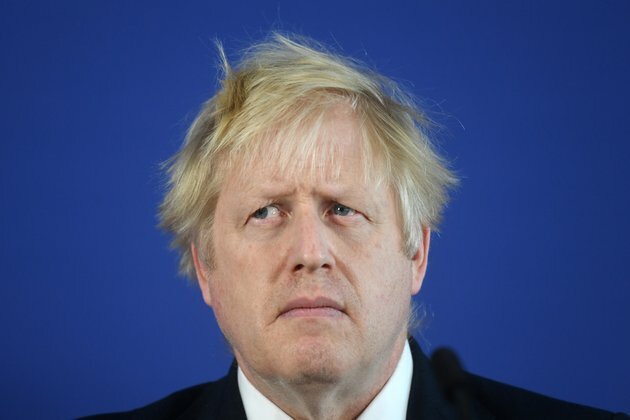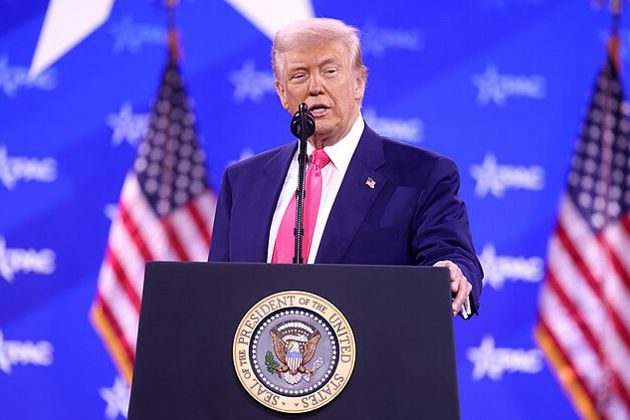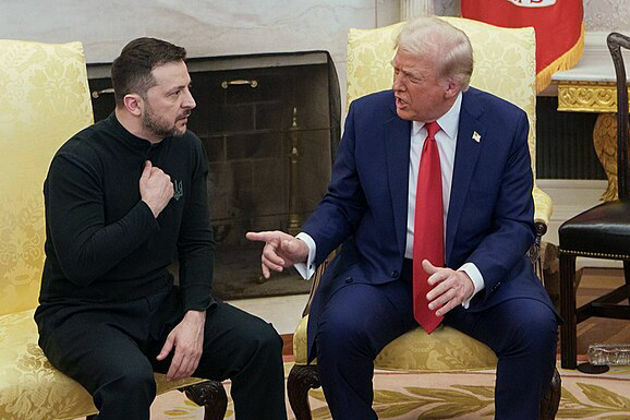Boris Johnson's Brexit policy explained
The Conversation
11 Dec 2019, 17:57 GMT+10

Boris Johnson's mantra for the 2019 election has been that a vote for the Conservatives is a vote to "get Brexit done". By this, he means that a Conservative government would pass his withdrawal agreement through parliament.
If MPs do vote for the withdrawal agreement and the legislation which implements it, then the UK will leave the EU, most likely by January 31 2020. The European Parliament must also approve the deal, but this should be a formality.
The withdrawal agreement is an international treaty which governs the terms of the UK's exit from the EU. It was largely negotiated by Theresa May's government. The most important elements of the withdrawal agreement are:
Citizens' rights: the rights of EU citizens currently in the UK and UK citizens currently in the EU are broadly protected, with some important exceptions
Financial settlement: the UK will make payments to the EU of up to Pound 39bn to cover liabilities accrued during the UK's EU membership
Standstill transition period: all EU-UK cooperation and trade remains unchanged until 31 December 2020
Northern Ireland protocol to avoid a hard border.
The only meaningful difference between May's withdrawal agreement and Johnson's revised version is the Protocol on Northern Ireland. Under Johnson's deal, there would be no hard border on the island of Ireland, as Northern Ireland would remain aligned to EU single market rules on goods and would operate a dual tariff system, applying the EU's common external tariff on any goods entering Northern Ireland but destined for the EU. This entails additional border checks and barriers to trade between Great Britain and Northern Ireland, which is why the Democratic Unionist Party opposes the deal.
The withdrawal agreement is accompanied by a political declaration - a non-binding document outlining aspirations for the future relationship between the UK and EU. Conservative MPs would also be voting for this when voting for the withdrawal agreement, as the two come as a package.
Negotiating the future relationship
Although the UK's official exit from the EU would be a profound and significant moment, it is merely a staging post in the long journey to a Brexit resolution. As soon as Brexit happens, the future relationship negotiations begin in earnest. This is why "get Brexit done" is misleading. But the Conservative plan would rule out the possibility of reversing Brexit via a second referendum or revoking Article 50.
The UK and the EU have between the withdrawal date and December 31 2020 (the end of the transition period) to negotiate and ratify the full agreement on their future relationship, which should govern relations in a vast range of areas such as trade, migration, security foreign policy and data.
It has taken three and a half years to negotiate the withdrawal agreement, which covers a much smaller set of issues and has not yet been ratified. It will be highly challenging to resolve the future relationship in such a short timeframe, not least because the future relationship agreement may need to be ratified by each EU member state's parliament, as well as several regional parliaments, which is not the case for the withdrawal agreement.
The transition period can be extended once, for either one or two years. The UK needs to request this extension by June 30 2020. This would enable a more realistic negotiating timeframe. But Johnson has repeatedly claimed that he will not extend the transition period - and the Conservative manifesto also commits to this.
This has raised fears of "No Deal 2.0", whereby the UK leaves the EU with a withdrawal agreement but does not conclude a trade agreement in time. This would present many of the same economic, political and social problems as leaving the EU without a withdrawal agreement.
Analysis of the political declaration and the Conservative manifesto indicates that the Conservatives will pursue a relatively distant trading relationship with the EU. The UK would leave the single market and customs union. Although there may not be tariffs and quotas, there would be significant non-tariff barriers to trade, stemming from a desire to pursue divergent regulations. This could lead to a departure from EU standards on workers' rights, environmental protections and state aid. Trade agreements with other countries would be prioritised.
Free movement of people will also end, to be replaced by a "points-based system" which treats EU and non-EU migrants the same and will presumably result in less migration to the UK. The EU will respond with reciprocal arrangements for UK citizens. Visa-free travel for short-term visits should continue.
In other areas of cooperation there is very little detail about what the Conservatives want. The manifesto emphasises taking back control over laws, but contains no specific plans in areas such as security and research.
If Johnson sticks to his policy of not extending the transition period, then we are most likely on course for no trade agreement, or at most a bare-bones trade agreement which covers only limited parts of the economy. There is insufficient time for anything else, unless Johnson accepts most EU demands and pivots towards a close relationship characterised by high levels of alignment, which is unlikely.
But the Conservatives may decide that concluding a comprehensive trade and partnership agreement is more important than sticking to their self-imposed deadline, not least because breaking the pledge on extension may be viewed as more politically palatable than dealing with the consequences of no deal. However, it is unlikely that Johnson would request this by the June 2020 deadline. If the request for an extension came after June, we would be in legally murky waters. All in all, the easiest phase of the negotiations may well be behind us.
Author: Oliver Patel - Research Associate, UCL European Institute, UCL 
 Share
Share
 Tweet
Tweet
 Share
Share
 Flip
Flip
 Email
Email
Watch latest videos
Subscribe and Follow
Get a daily dose of Europe Sun news through our daily email, its complimentary and keeps you fully up to date with world and business news as well.
News RELEASES
Publish news of your business, community or sports group, personnel appointments, major event and more by submitting a news release to Europe Sun.
More InformationInternational
SectionTikTok building U.S.-only app amid pressure to finalise sale
CULVER CITY, California: TikTok is preparing to roll out a separate version of its app for U.S. users, as efforts to secure a sale...
Trump defends use of 'Shylock,' citing ignorance of slur
WASHINGTON, D.C.: President Donald Trump claimed he was unaware that the term shylock is regarded as antisemitic when he used it in...
Summer travel in chaos as French air traffic controllers walk off job
PARIS, France: A strike by French air traffic controllers demanding improved working conditions caused significant disruptions during...
Congress weighs Medicaid cuts, sparking alarm in small-town hospitals
OMAHA, Nebraska: With Congress considering cuts totaling around US$1 trillion to Medicaid over the next decade, concerns are rising...
Gas station blast injures 40 in Rome, kids narrowly escape
ROME, Italy: Quick thinking by emergency responders helped prevent greater devastation after a gas station explosion in southeastern...
Weapons pause by Trump signals shift away from foreign wars
WASHINGTON, D.C.: President Donald Trump is drawing praise from his core supporters after halting key arms shipments to Ukraine, a...
Business
SectionBirkenstock steps up legal battle over fakes in India
NEW DELHI, India: Birkenstock is stepping up its efforts to protect its iconic sandals in India, as local legal representatives conducted...
Beijing hits back at EU with medical device import curbs
HONG KONG: China has fired back at the European Union in an escalating trade dispute by imposing new restrictions on medical device...
Wall Street reels after Trump invokes new tariffs
NEW YORK, New York - Monday's trading session saw mixed performances across U.S. and global markets, with several major indices posting...
Trump admin allows GE to restart engine sales to China’s COMAC
WASHINGTON, D.C.: The U.S. government has granted GE Aerospace permission to resume jet engine shipments to China's COMAC, a person...
Saudi Aramco plans asset sales to raise billions, say sources
DUBAI, U.A.E.: Saudi Aramco is exploring asset sales as part of a broader push to unlock capital, with gas-fired power plants among...
Russia among 4 systemic risk countries for Italian banks
MILAN, Italy: Italian regulators have flagged four non-EU countries—including Russia—as carrying systemic financial risk for domestic...













